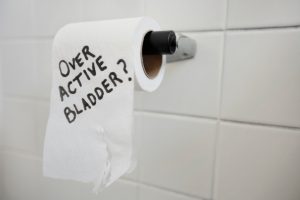
Bladder woes as we age
The Centers for Disease Control and Prevention (CDC) has estimated that more than 50 percent of senior Americans suffer from incontinence. Due to muscle weakness in the pelvic floor, urine can leak leading to embarrassment and a fear of heading out in public.
To combat bladder leakage and overactive bladder individuals may wear diapers or pads, or worse yet not leave the
5 ways to take control of your bladder
If you’re fed up with your bladder controlling your life here are five ways by which you can finally take control of your bladder.
1. Keep your weight in check
You may not realize this but just as being overweight can lead to general illness, it can also lead to poor bladder health. More weight means more pressure added on your bladder which can leave you feeling like you always have to go.
An easy way to improve your bladder then is to keep your weight in check. Dropping a few pounds may be all it takes to relieve that constant added pressure on your bladder.
2. Mind your beverages
Limit your consumption of these types of beverages and stick with water for hydration instead.
3. Stop smoking
If you are a smoker you’ve probably heard it a thousands times to stop. But if you’re also experiencing bladder troubles there’s even more of a reason to quit the bad habit.
Smoking is linked to bladder cancer. It is also known to stimulate the bladder to dump more urine. Additionally if your smoking habit has given you a chronic cough you’re more likely to experience urine leakage as well.
4. Avoid urinary tract infections
Chronic UTIs can cause permanent damage to the bladder as well as the kidneys and so consuming pure cranberry juice is an effective means of minimizing your risk of developing one. Likewise always make sure you are not holding in your urine, make it a habit to pee after sex and properly clean yourself after peeing.
5. Pay attention to your medications
Maybe you haven’t experienced incontinence your whole life but since you began a particular medication you have bladder troubles. This is not as uncommon as you think. In fact there are over 300 different medications which can cause or worsen incontinence.
If you’ve noticed that since you’ve begun a medication your bladder function has changed, speak with your doctor to see if there are any alternatives you can take.
No one wants to be rushing to the bathroom every second and that’s why controlling your bladder is so vital. Following these helpful tips may finally give you back that control and let you enjoy life once again.